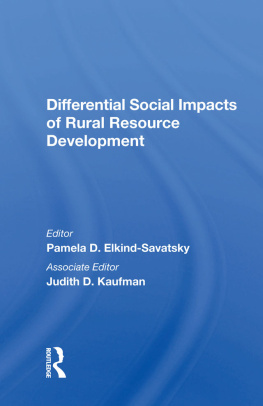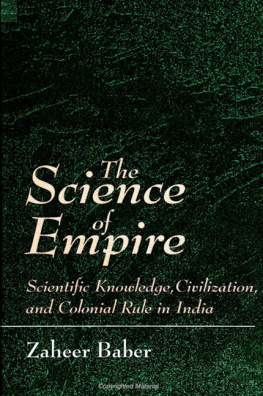Pamela Donofrio-flores - Scientific-technological Change And The Role Of Women In Development
Here you can read online Pamela Donofrio-flores - Scientific-technological Change And The Role Of Women In Development full text of the book (entire story) in english for free. Download pdf and epub, get meaning, cover and reviews about this ebook. year: 2019, publisher: Routledge, genre: Politics. Description of the work, (preface) as well as reviews are available. Best literature library LitArk.com created for fans of good reading and offers a wide selection of genres:
Romance novel
Science fiction
Adventure
Detective
Science
History
Home and family
Prose
Art
Politics
Computer
Non-fiction
Religion
Business
Children
Humor
Choose a favorite category and find really read worthwhile books. Enjoy immersion in the world of imagination, feel the emotions of the characters or learn something new for yourself, make an fascinating discovery.

- Book:Scientific-technological Change And The Role Of Women In Development
- Author:
- Publisher:Routledge
- Genre:
- Year:2019
- Rating:5 / 5
- Favourites:Add to favourites
- Your mark:
- 100
- 1
- 2
- 3
- 4
- 5
Scientific-technological Change And The Role Of Women In Development: summary, description and annotation
We offer to read an annotation, description, summary or preface (depends on what the author of the book "Scientific-technological Change And The Role Of Women In Development" wrote himself). If you haven't found the necessary information about the book — write in the comments, we will try to find it.
Scientific-technological Change And The Role Of Women In Development — read online for free the complete book (whole text) full work
Below is the text of the book, divided by pages. System saving the place of the last page read, allows you to conveniently read the book "Scientific-technological Change And The Role Of Women In Development" online for free, without having to search again every time where you left off. Put a bookmark, and you can go to the page where you finished reading at any time.
Font size:
Interval:
Bookmark:

and the Role of Women in Development
edited by Pamela M, D'Onofrio-Flores and Sheila M. Pfafflin

Pamela M. D'Onofrio-Flores and Sheila M. Pfafflin

52 Vanderbilt Avenue, New York, NY 10017
2 Park Square, Milton Park, Abingdon, Oxon OX14 4RN
Product or corporate names may be trademarks or registered trademarks, and are used only for identification and explanation without intent to infringe.
Main entry under title:
Scientific-technological change and the role of women in development.
(Westview's special studies in social, political, and economic development) Includes edited papers presented at the 1979 United Nations Conference on Science and Technology for Development.
Includes index.
Contents: Technology, economic development, and the division of labour by sex/Pamela M. D'Onofrio-Flores-Women and technology in the industrialized countries/Maria Bergom-Larsson-Women and technology in peripheral countries: an overview/Zenebeworke Tadesse-[etc.]
1. Women-Social conditions-Congresses. 2. Rural women-Social conditionsCongresses. 3. Underdeveloped areas-Women-Congresses. 4. Underdeveloped areas-Technology-Social aspects-Congresses. 5. Women in science-Congresses. I. D'Onofrio-Flores, Pamela M. II. Pfafflin, Sheila M. III. United Nations Institute for Training and Research. IV. United Nations Conference on Science and Technology for Development (1979: Vienna, Austria) V. Series: Westview special study in social, political, and economic development.
HQ1154.S33 305.4'2 81-10463
AACR2
- ii
- iii
- iv
Font size:
Interval:
Bookmark:
Similar books «Scientific-technological Change And The Role Of Women In Development»
Look at similar books to Scientific-technological Change And The Role Of Women In Development. We have selected literature similar in name and meaning in the hope of providing readers with more options to find new, interesting, not yet read works.
Discussion, reviews of the book Scientific-technological Change And The Role Of Women In Development and just readers' own opinions. Leave your comments, write what you think about the work, its meaning or the main characters. Specify what exactly you liked and what you didn't like, and why you think so.










